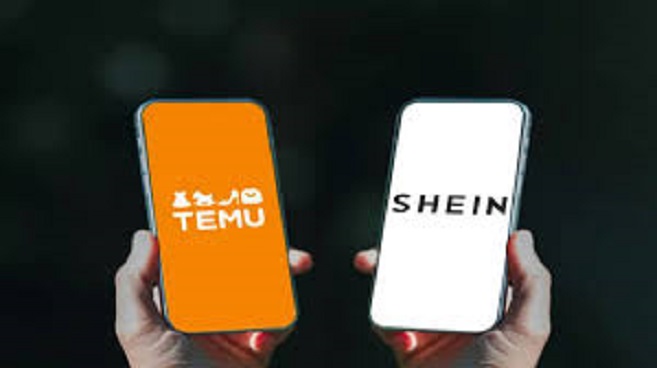Telecom
NCC’s Regulatory Instruments Set to Facilitate 5G Deployment, Tackle Insecurity – Danbatta

Prof. Umar Garba Danbatta, Executive Vice Chairman (EVC) of the Nigerian Communication Commission (NCC), has declared that three of the Commission’s regulatory instruments are set to offer enabling provisions that will help the country in tackling security and insurgency; as well as to enhance spectrum availability to facilitate the deployment of Fifth Generation (5G) technology.

The three instruments, which were subjected to a public inquiry on Tuesday physically and virtually, include the Spectrum Trading Guidelines (STG), Registration of Telephone Subscribers Regulations, and the Subscriber Identity Module (SIM) Replacement Guidelines.
Speaking recently at a semi-virtual public inquiry, which on-site operation was conducted at the Commission’s Head Office in Abuja, Danbatta said the three regulatory instruments have been developed to address the challenges of the ever evolving communications industry and to further strengthen the market structure.
He said the public inquiry was held in line with the Commission’s consultative approach in all its regulatory interventions, as the regulatory instruments being reviewed are vital to ensuring that the regulatory frameworks that pertain to SIM registration and replacement in the communications industry meet the demands of the digital age and also further enhance the flexibility of the spectrum trading regime.
The first instrument, the Registration of Telephone Subscribers Regulations, provides a regulatory framework for the registration of subscribers of communications services utilising subscription mediums.
The second instrument, SIM Replacement Guidelines, provides guidance on the standards and procedure which Network Service Providers (NSPs) are expected to adhere to in the process of conducting a SIM Replacement, swap or upgrade.
Besides the instruments, two Business Rules that relate to SIM Registration and SIM Replacement, introduced by the Commission to further ensure that the process for SIM activation and Replacement is seamless and align with the national identity management policy.
The third instrument, the Spectrum Trading Guidelines (STG), seeks to promote certainty and transparency by outlining the detailed procedure and conditions for spectrum trading in the Nigerian communications sector.
While underscoring that the availability of spectrum frequency is a necessary element in the deployment of the 5G technology in Nigeria, Danbatta said the recent approval of the 5G Deployment Plan by the Federal Government makes the STG review process expedient.
Danbatta said the public inquiry is a precursor to the Commission’s current drive towards ensuring that frequency spectrum is readily available to licensees through a rapid and effective process.
Additionally, the EVC said that “in view of the resolve of the Federal Government to tackle insurgency and insecurity through citizen identity management, it has become necessary to ensure that the provisions of the Registration of Telephone Subscribers Regulations and SIM Replacement Guidelines are in alignment with the National Identity Policy for SIM Card Registration and related activities.”
According to him, the revision of both instruments is geared towards ensuring a more secure and robust process for the registration, activation and replacement of SIMs.
“It is, therefore, my expectation that the review will ensure a more robust framework for the registration of subscribers of communication services, improve the standards and procedures for SIM replacements and ensure effective and efficient utilisation of frequency spectrum in Nigeria,” the EVC said.
Speaking earlier, NCC’s Executive Commissioner, Stakeholder Management, Adeleke Adewolu, said the draft of all the regulatory instruments had been published on the Commission’s website and comments from all stakeholders have been received and reviewed.
However, he noted that the public inquiry was meant to receive more comments from stakeholders, which would ensure that the final regulatory instruments will enhance development of the industry.
At the event, which was well attended by senior management staff of the Commission and virtually by other external stakeholders, presentations were made by the Commission on the inputs so far received from licensees and other stakeholders on each of the three regulatory instruments, highlighting issues for further rethink by all stakeholders.
The stakeholders who participated in the event virtually, were also provided the opportunity to make inputs, contribute freely to the discussions in a very frank and objective manner that elicited thoughtful discussions that will further enrich the quality of the regulatory instruments being developed for the growth of the sector and the national economy.
Telecom
Salesforce Revolutionizes Business Intelligence with AI-Powered Tableau Next


Organisations today face a data paradox: they need to make fast, intelligent decisions but are overwhelmed by large volumes of often unreliable information. With over 75% of business leaders under pressure to prove data’s value, the demand for trusted, actionable insights has never been greater.
What is agentic analytics
Agentic analytics allows users to collaborate with AI agents to speed up the entire data-to-action process. Instead of relying on static visualizations, analysts can use AI to automate tasks like data preparation and ETL (extract, transform, load processes), freeing them to focus on deeper analysis. Business leaders can ask natural language questions and get instant, reliable answers along with recommended actions. This makes data-driven decision-making easier and more efficient, removing the need for technical expertise and manual effort typical of traditional BI tools.
- Automate repetitive data tasks like data cleaning, transformation, and visualization generation, as well as the execution of complex, multi-step analytical workflows within and across different business areas. This builds on Tableau’s strength in simplifying complex data for users.
- Proactively deliver faster, more comprehensive insights by autonomously detecting hidden correlations, outliers, and trends that might be missed by human observation. This enhances Tableau’s focus on user-driven insights by providing AI guidance.
- Enable more contextual and effective action through natural language summaries, visualisations, and data-driven recommendations, insights delivered where people work with an enterprise-class workflow engine that enables users to kick off automated actions. This extends Tableau’s ability to drive action from data, making it more seamless within the Salesforce ecosystem.
Built on the trusted Salesforce Platform and leveraging the power of Data Cloud, Tableau Next delivers enterprise-grade performance, robust security, and flexible, zero-copy data integration for seamless data connectivity. Tableau Semantics, an intelligent semantic layer, provides a unified understanding of information, ensuring data consistency and accelerating the discovery of critical insights. The built-in workflow engine in Tableau Next seamlessly translates insights directly into actionable steps, dramatically accelerating the time to value. The key differentiator is the native integration with Agentforce, Tableau Next equips humans and AI agents with pre-built analytical skills to rapidly transform data into tangible business value, marking a significant leap forward in data-driven decision-making. It includes:
- Data Pro: Your Intelligent Data Prep Assistant. Instead of users manually cleaning up and changing data using complex steps (like in traditional ETL), Data Pro will give smart suggestions on how to do it and even automatically handle some of the complicated changes, saving time and effort.
- Concierge: Instant Answers in Plain Language. Get immediate, reliable answers to data questions. Sales teams, for example, can simply ask “What are my best sales opportunities?” and receive clear insights with recommended actions.
- Inspector: Proactive Data Monitoring & Insights. Continuously tracks your data for key changes, analyzes trends, and predicts improvements. Service teams can be instantly alerted to drops in customer satisfaction, enabling immediate action.
Ensuring Data Trust and Accuracy:
- Tableau Semantics: Tableau Semantics serves as the semantic layer, providing Tableau Next and Agentforce with a unified understanding of business data. By establishing consistent definitions and context, it enables AI agents to generate accurate and relevant responses.
Boosting Efficiency:
- Marketplace: Allows users to easily share and reuse data analysis components (like data assets, connections, metrics, visualizations, dashboards), saving time and ensuring everyone is working with the same information.
“Tableau Next helps businesses achieve faster, more impactful results with their data,” said Ryan Aytay, CEO of Tableau. “We’re shifting from basic reports to a world where AI is a collaborative decision-making partner. By combining AI agents with trusted data and easy-to-use tools, we’re making data accessible to everyone and transforming the data-to-action process into an automated, proactive, and insight-driven cycle. This empowers users to improve decision-making, boost efficiency, and manage risk more effectively.”
Telecom
Temu and Shein Raise U.S. Prices Amid Trump-Era Tariffs

Chinese-founded e-commerce platforms Temu and Shein have announced upcoming price increases for U.S. customers, citing higher operating expenses due to tariffs imposed during former President Donald Trump’s administration.

These tariffs include a 145% import tax on most goods made in China and the elimination of the “de minimis provision,” which previously allowed goods valued under $800 to enter the U.S. duty-free.
The changes, effective May 2, have disrupted the business models of both companies, known for their ultra-low prices and extensive digital marketing campaigns.
Temu and Shein, which specialize in affordable products ranging from clothing to electronics, have urged customers to shop before the price adjustments take effect.
The companies aim to minimize the impact on consumers while adapting to the new trade rules.
These developments come amid concerns from U.S. lawmakers and business groups about the competitive advantage of inexpensive Chinese goods and the potential entry of counterfeit products through the now-canceled exemption.
Telecom
Google Launches 2025 AI Startups Accelerator Program for African Innovators

Google has opened applications for the 2025 Google for Startups Accelerator Africa program, a three-month initiative designed to support early-stage startups using artificial intelligence to address Africa’s most pressing challenges.

Across the continent, startups are demonstrating how local innovation can solve deeply rooted problems. In West Africa, Crop2Cash – an agritech platform and alumni of the program – is using AI to digitally onboard smallholder farmers, build their financial identities, and provide them with access to credit, traceable payments, and productivity tools.
Through these efforts, Crop2Cash is improving agricultural outcomes and unlocking economic opportunity for farmers who have long been excluded from formal systems—illustrating the kind of impact that’s possible when African startups receive the support they need to scale.
The Accelerator is open to Seed to Series A startups based in Africa that are building AI-first solutions. Startups must have a live product, at least one founder of African descent, and a clear vision for responsible AI innovation. Selected participants will receive:
Dedicated technical mentorship from Google and industry experts
Up to $350,000 in Google Cloud credits
Access to a global network of investors, partners, and collaborators
Workshops focused on technology, product strategy, people leadership, and AI implementation
AI’s potential to accelerate Africa’s development is real, and Google is investing in ensuring that African startups lead that charge. According to McKinsey, AI could add $1.3 trillion to Africa’s economy by 2030, but only if bold innovation is supported at the grassroots.
“Startups are Africa’s problem solvers. With the right resources, they can scale their impact far beyond local communities,” said Folarin Aiyegbusi, Head of Startup Ecosystem, Africa at Google.
“This program reflects our belief that AI can be transformative when shaped by those who understand the context deeply.”
Since 2018, the program has supported 140 startups from 17 African countries. These alumni have raised more than $300 million in funding and created over 3,000 jobs. Many are now regional and global leaders in their categories.
Applications for the 2025 cohort are now open. Startups interested in participating can apply at: https://startup.google.com/programs/accelerator/africa
For further information and updates, visit the Google Africa Blog or follow @GoogleAfrica on social media.

 Telecom3 days ago
Telecom3 days agoBanks, Telcos Mull New Billing Plans for USSD Airtime Payments

 E-Business3 days ago
E-Business3 days agoNIPOST in Intensive Care, Needs Reforms Need to – Kekemeke

 General News3 days ago
General News3 days agoFG Launches Survey to Encourage Nigerian Digital Firms Spread Across Africa

 E-Financial3 days ago
E-Financial3 days agoLeadway Partners Firm to Launch Retail Insurance Product for Women

 News3 days ago
News3 days agoDG NITDA Urges Foreign Investors to Tap into Nigeria’s Digital Future

 Telecom3 days ago
Telecom3 days agoMTN, Digital Encode, Back eBusinesslife Girls In ICT Campaign

 News3 days ago
News3 days agoEFCC Assures CBEX Investors of Fund Recovery Amid Investigation

 E-Financial3 days ago
E-Financial3 days agoSage Grey Finance Partners with Bank of Industry to Empower MSMEs in Nigeria

























